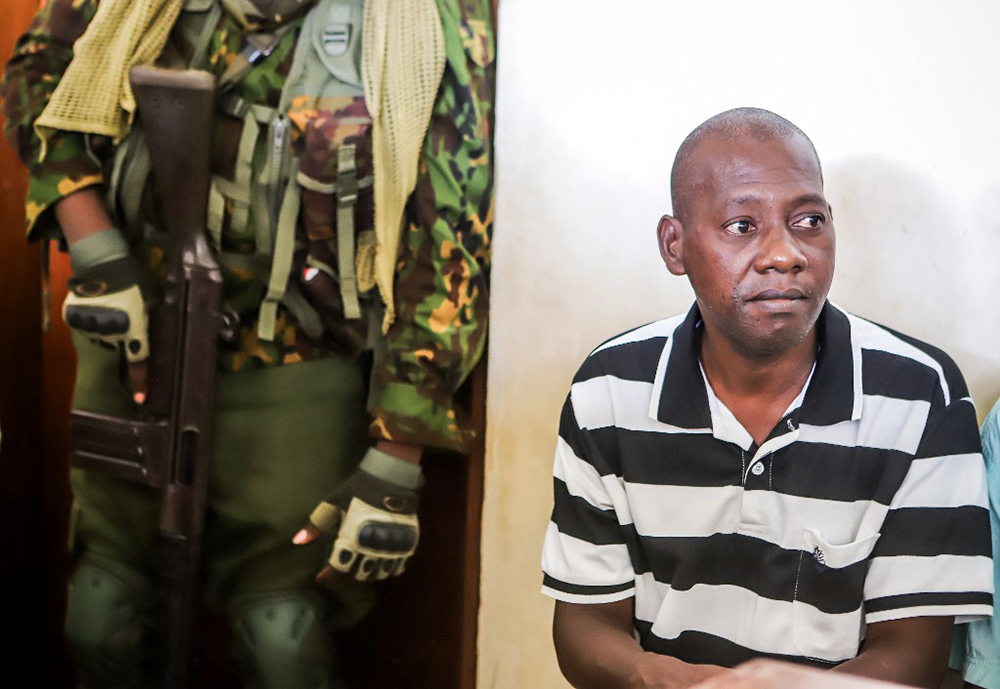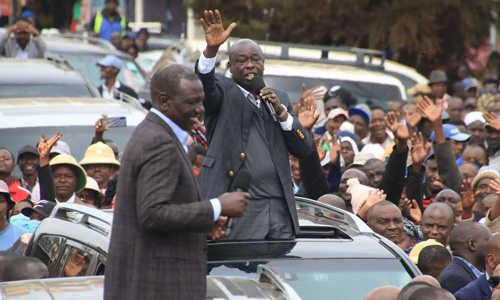On Monday, Paul Nthenge Mackenzie, the leader of a Kenyan starvation sect, began his trial for manslaughter following the deaths of over 400 followers. This trial is part of the broader case known as the “Shakahola Forest Massacre,” one of the world’s most severe cult-related tragedies.
Mackenzie, who claims to be a pastor, and dozens of other suspects entered not guilty pleas to multiple counts of manslaughter in January. They face charges related to their roles in the deaths that occurred in the Shakahola Forest, a remote area near Malindi.
Mackenzie appeared at the magistrate’s court in Mombasa alongside 93 other suspects, according to court officials and prosecutors. The prosecutor, Alexander Jami Yamina, described the case as unprecedented in Kenya, noting that the defendants will be charged under laws concerning suicide pacts. Yamina emphasized the unique nature of the manslaughter charges in this case.
The case centers around allegations that Mackenzie encouraged his followers to starve themselves to “meet Jesus.” The discovery of multiple bodies in the Shakahola Forest in April last year sparked outrage both in Kenya and internationally. Rescuers have since uncovered around 448 bodies from mass graves, with autopsies revealing that most victims died from starvation. Some victims, including children, were found to have been strangled, beaten, or suffocated. Reports also indicate that some bodies had organs removed.
The charge sheet includes 95 defendants, among them Mackenzie’s wife. However, one of the accused women died in police custody due to health complications and the effects of starvation, as stated by Yamina.
Prosecutors have prepared at least 420 witnesses for the trial, which is scheduled to last four days. Some witness testimonies will be given in private due to the sensitive nature of the case.
The suspects have also faced terrorism charges related to the Shakahola massacre, along with separate charges of murder, child torture, and cruelty from incidents spanning 2020 to 2023.
In March, authorities began returning some victims’ bodies to their families after extensive DNA identification work. To date, 34 bodies have been returned.
Mackenzie established his Good News International Church in 2003 but claimed to have closed it in 2019 to prepare for the end of the world, which he predicted would occur in August last year. This case has prompted the Kenyan government to call for tighter regulation of fringe religious groups. A commission set up by President William Ruto to investigate the deaths and review religious regulations recently recommended a hybrid model of self-regulation and government oversight.
Reports from the Kenyan Senate and a state-funded human rights organization suggest that the authorities might have prevented the tragedy. Efforts to regulate religion in Kenya, a predominantly Christian country, have historically faced opposition as they are perceived as attempts to undermine the separation of church and state.




















